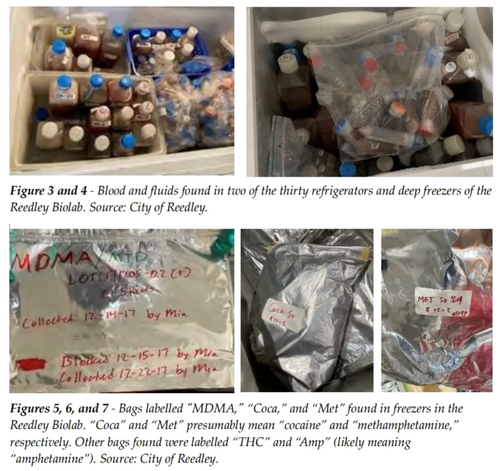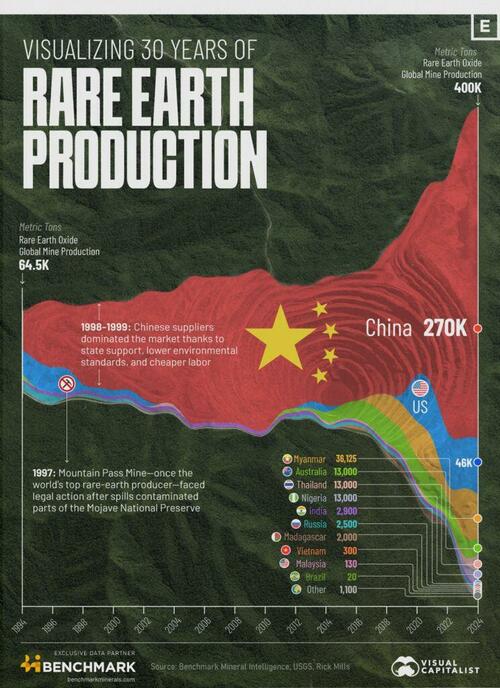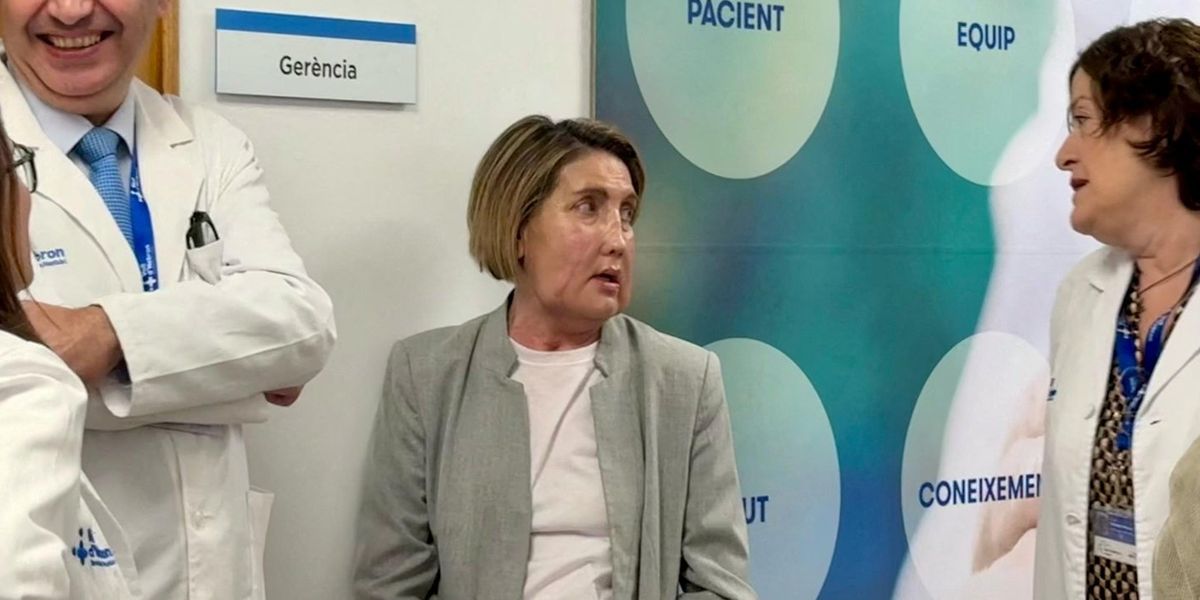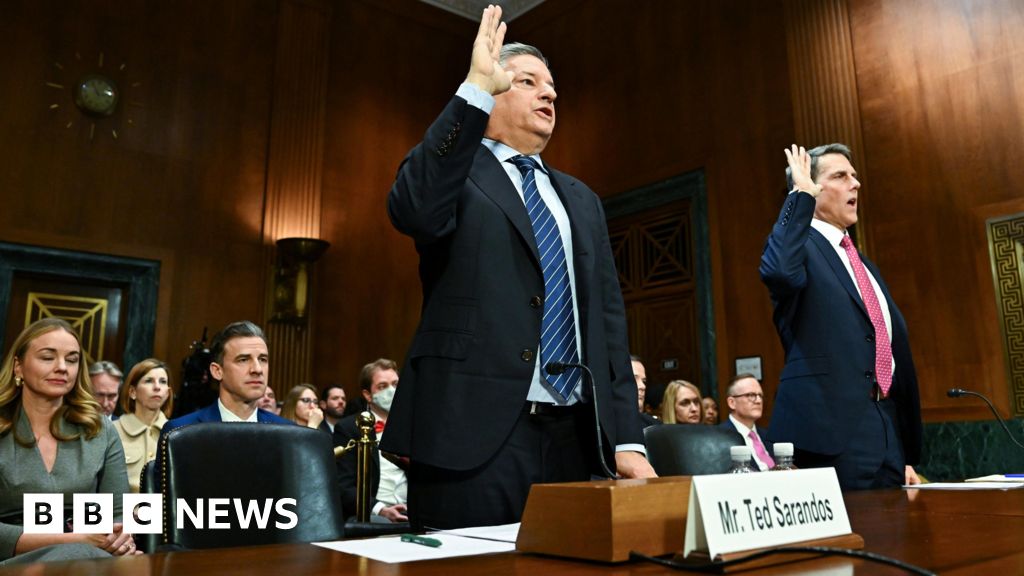A Return to Health Care: Not Sick Care
D.O. Christof Plothe, the head researcher for the World Council for Health, on how we can move away from the profit-based pharmaceutical model of health care, and return to providing proper care that’s focused on patients.
(0:00 - 0:24) Hello and welcome to another episode of TRUTH Rx. My name is Christof Plothe and I'll be guiding you through this session, which is to me one of the most important ones of our time. Well, some of you might have realised that medicine is not quite what it used to be. (0:25 - 3:07) We had original ideas throughout history, and I'm a great friend of exploring different perspectives towards health throughout the centuries. The history of medicine, I think, is absolutely fascinating. But we've seen a development in the last few decades that seems to divert from the original ideas of a medical system to a system that is basically dominated by money and where the patient is almost without any right. So with this situation in the back of my mind, seeing waiting lists here in Europe for patients to be longer and longer to get a specialist appointment and then to be referred to the next specialist, to the next specialist, and the fundamental reasons for why we should consult a doctor, namely the aetiology, where the origin of any disease is not even mentioned, is not even questioned. And because this is not even a topic in medical school, there is huge space to reform the system from a disease management system to a health promoting system. Why am I saying disease management? Because basically the way the Rockefellers, since they took over medicine, considered medicine, is a perspective on making money. So healing a patient, and there are actually files in the German doctor association that prove this in the 70s and 80s, that the worst thing you could do for the system is actually to heal somebody. Because as soon as you would start to heal somebody, he would not rely on any medicine. And most of the medicines you might have observed in your own life are not really there to cure, but to keep you on that particular medication for as long as possible. So with this in the back of our minds, we developed a system for the medicine of the future. And it was Dr. Michael Nehls here in Germany who delivered the first draft for it. And I had the honour of editing it and adding to the system. (3:07 - 8:16) And we finally published it in a leaflet of the World Council for Health. So it's an exploration of a comprehensive holistic approach to health to recombine for a future. So what should this include? Well, by looking and analysing our current system, it became quite clear that reform is not really the adequate term because it needs to be changed in its fundamental pillars. So when we start talking about introducing the transformative health care system programme, it's not really so much a reform, but it's a replacement of current situation in medical education, in medical research, and in the way it is practised on the local level with your GP when it comes to specialists and then into health care at hospitals, which is a completely different ballgame. So it should emphasise that system, a causal therapy. So to ask ourselves, where is it actually coming from? And you won't believe if you look into the medicine at the moment that nobody is talking about root causes. A very strange thing. Even if you take your car to the garage, you wouldn't stay very long with a mechanic who is not interested to enquire where the actual problem is coming from. And it should emphasise prevention and causal therapy. And it should aim to reshape health care for the betterment of society. So not just for the individual, but for society. And as we can see at the moment, this current system is drawing a lot from the individual and is drawing a lot of society. In fact, medicine of our time has become like a dictatorship that determines so many aspects of our lives. If we remember since 2020, what the health care system did with us and how it was used, whilst we had wonderful alternatives for anything that was happening under COVID, but everything was blocked in order to push a huge blockbuster with huge profits for individual companies. So we first start to work on it in May 2025. The aim was to look at holistic health and the integration of natural practises into modern medicine. And this is what the leaflet looks like. It's available from the World Council for Health for all of those interested in exploring the topic a little bit further. So yeah, where did the foundation of our medicine come from? We of course had a medicine before, Hippocratic Hippocrates, but the Hippocratic wisdom describes an empirical and holistic approach that dates back to around 400 BC. And yeah, look at the fact that it emphasises health and illness that are connected to natural causes. So what happened in the course of medicine that that perspective got lost? Because this approach promotes mostly prevention. It promotes a harmony with nature and holistic care. And medicine at that time was seen as an empirical science focused on understanding health in a broader and more integrated context. If you go to Greece and still look at the places where all those founders of our medicine practised, it was in beautiful areas. People spend lots of time in nature. They knew about the effect of the sea, the soil, the food, and the sea on health. But after a while, throughout the centuries, you could see when bath centres were set up everywhere, where people know that the environment already created a healing effect. Please compare this to a modern hospital in which, if you haven't been diseased before entering a hospital after a week coming out with the nutrition, with the electromagnetic radiation, with the stress, with the sleep disruption, and everything else, you certainly will come out, even as a healthy person, with certain aspects of disease. So in the 20th century, all of a sudden, there was a shift. And that was, as we described already, that was a basic initiative by the Rockefeller Foundation, which could see that a lot of money was able to be produced when investing into pharmacology. (8:16 - 8:40) And that was at the time where there was not one set of medical school at that time. But there were homoeopathic colleges, osteopathic colleges, all kinds of natural therapies that had basically the same rights, which many people don't know. And this right was taken away from them by intent. (8:41 - 10:34) It was not that the other system proved to be more effective. That was not the case. It still is not the case. Only 5% in an amazing study a few years ago showed that only 5% of allopathic medicine actually stands the test of peer-reviewed double placebo-controlled blind tests in order to prove that they actually work 5%. So it's not that the system was that superior, but they somehow found a way to discredit everything else, to call it alternative, to call it quackery, a process which is still going on. For example, I go to a vet with my animals, which I hardly do, but it's a friend of mine. And we get into discussions, especially about the foundations of health in general, and then talk about the different foods that an animal needs. One of the first questions when your dog is diseased, and that this question has absolutely no space when you enter a hospital, when you enter your GP's practise, or the cardiac specialist, or anything else. So in the 20th century, a significant shift occurred with the advent of a pharmaceutical-orientated model, often referred to the Rockefeller medicine. The era marginalised natural healing processes, transforming medicine to a disease management industry. The focus became symptom management through lifelong medication after compromising true health and well-being. So just imagine that this is actually true, that the current system is not interested in your health, no, it is actually interested in selling you something for the rest of your life. (10:35 - 13:05) So what are the foundations that we start off with as the World Council for Health? It's our seven principles. These are for us an alternative to the lack of ethics that we experience in our life by failing programmes of pure understanding of our human nature. When it comes to religion, when it comes to politics, when it comes to science, we looked at basic foundations that we can all subscribe to, that should be basically the foundation of even a contract between a health care practitioner and a patient. So what are they? We are part of nature. We recognise that we have an intrinsic connection to nature, which is vital for health and sustainability. In fact, we know about all the factors out in nature from air, from water, from light that actually influence negatively or positively our state of health. So to embrace this relationship, fastest holistic approach to wellness and environmental stewardship. The next one is spirituality. Something that, yeah, is considered as quackery for many as well, but two-thirds recent studies showed in our modern society in Europe and North America and Canada basically had some sort of belief system, not universal by no way, but that there is a spirituality when you look at our life. And this is integral to well-being in our perspective because it plays a role in holistic health, enhancing emotional balance and overall well-being. Recognising this aspect encourages a deeper understanding of health as a multi-factor concept. And while some people might not agree, some people will. So to look at the miracle of life is already to us a reflection of a spirit, a spirituality in our perspective on life. The other thing is that we thrive together because we need community and collaboration, which are essential for our health and resilience. By thriving together, we foster support systems that enhance individual and collective well-being. (13:05 - 13:55) And we also value different perspectives. One thing you might have realised in the last few years, there only seems to be black and white, whereas the grey, the green, the blue and the red are gone. Very interesting, especially when it comes to science, which in fact, per nature, per se, is to propose a theory and then to prove or disprove this theory. So that never is a clear cut. We are the science perspective because science in its nature has different perspectives for looking at something. And we'll come back to that later, because even the way that we are doing our science nowadays is fundamentally not valid for describing life. (13:56 - 15:26) Valuing diverse perspectives enriches our standing and solution in healthcare. Inclusion fosters an environment where everyone's voice is heard and respected. And we are free to make our own decisions. Personal autonomy is fundamental to health decisions. And empowering individuals to make informed choices leads to more effective and compassionate healthcare. A very, very important aspect in our time, we're constantly being told that we know nothing, but the other side knows everything, which is not true because we also have a gut feeling. We also have our own perspectives, our own belief systems that either make us react to a healthcare approach or even decline under it. And we act in honour and do no harm while talking about the Hippocratic Oath, which is basically not existent anymore. Our commitment to honour and do no harm underpins ethical healthcare practises. This principle ensures that patient welfare is prioritised above all else. And the last one, it's commitment to rights and freedoms. We stand firm against violation of rights and freedoms, ensuring that the health system serves people first, not profit. This commitment reinforces our deterioration to equity and justice. Dedication, by the way, deteriorates. So the core problem is the paradigm shift. (15:28 - 15:59) Understanding that is very crucial in order to understand what I said at the beginning, that basically we can't do a reform. We really have to create a paradigm shift in order to create something new, which is basically collecting all the bits that we've had in the past before Rockefeller Medicine took over. Understanding this critical shift from a reductionist approach to a holistic health solution is essential for addressing the chronic disease crisis. (15:59 - 23:27) And here is the first important thing to understand, how science has been working basically since Descartes, so since the 18th century, which was to dissect life into little, little aspects, which is called a reductionist approach, and then see what intervention you can do, and which creates on this tiny, tiny minute level, a change, and thus declaring it a therapy. Well, this is not only restricting the science in medicine, of course, because in almost all sciences, this is taken, but we are living in an open system. We are in constant exchange with the bacteria in us, around us, with the light, with the food, with other people, with electromagnetic radiation under this, and to basically just look at one cell and one cell process in this in order then to claim that this is a cure is basically not considering that it will have other effects, so-called side effects that are basically quite natural if you ignore the entire holistic concept of what we should be doing in any research and in any treatment when it comes to us, our plants, our animals, and us as humans. So, the fundamental flaw that is that multi-causal health issues often arise from lifestyle choices and environmental factors and nutritional deficits. If you look at this list and check when the last time was that when you had a health problem that your lifestyle choices, your environmental factors, all the toxins that surround us, but also the positive aspects that we have in food and the nutritional deficiencies are looked at, yes, you're right. It's not even looked at, and these are fundamental principles how to define life, and if we ignore them, we don't do justice doing any sort of medical approach because we basically are not considering the foundations. I just gave a presentation in Austria on the fundamentals of life, talking about this, and I used the image of a gardener and its plant, and the gardener, when it looks at its plant, wants to nourish it when it has a problem, first of all, with the right amount of water, with the right amount of nutrients, and with the right amount of sun exposure, and then the likelihood that this plant will grow afterwards in a healthier way is very, very high. So, why don't we look at us, the basics of life first before treating some misalignment in the system? The other thing is we look at a single-cause solution. So, there is the problem, there's the symptom, and there we give the medication, but current practises primarily rely on pharmaceuticals failing to address the root causes of the disease. If we keep on looking at symptoms, we won't get very far, and we will create the next problem with the side effects of the drug that we've given before. So, you end up, before you know it, on a dozen medications. When you reach a certain age here in Germany, it's very unlikely that you are on a programme that's below 10 different medications, many of them just suppressing the side effects that the other medication has created. So, we have a chronic disease epidemic, and this approach has led to alarming increases in chronic illness, Alzheimer's, cancer, diabetes, and mental health disorders. We forget to look into the history of medicine to see the first heart attack was in 1930. The rate of cancer, look at it in the 1920s or even further, you will hardly find it. And some of you in my generations will still know what a fatal and a horrific event it was when anybody in our community suffered from cancer. It was very rare. And Alzheimer's, I don't remember any grandma in any of my neighbourhood or anywhere else that had a problem with it. It did exist, but the rates that we have at the moment, they're just exponentially exploding. And we look at diabetes type 2 was a very, very rare occasion going to a normal internal ward in a hospital, and you'll see the majority of people will have some sort of prediabetes or diabetic tendency. So, we need a necessary paradigm shift. Moving from a reductionist model towards a systemic and holistic understanding of health is imperative if we don't really want to go down and basically bankrupting because it's about money, as we said, but the system doesn't have enough money anymore to support all the therapies that are coming up all the time because it's very non-lucrative to look at repurposed drugs or anything to tackle a problem because there's no money to be made from it. So, from a symptom management to root cause addressing, we need to transform the focus from merely managing symptoms to actively promoting health and from a disease industry to true health promotion. So, we need to get away from the money. And of course, everybody will say, oh, we need the money in order to create all those drugs and vaccines. Well, if you look at the big companies that are doing this, up to 80-90% is in advertising. So, this is not really the reason why this industry should be bankrupt, but we have to reorientate the medical framework to prioritise genuine health outcomes. And there's no such thing in all those so-called alternatives. I don't like the term. I don't use it. But in the traditional medicine or in the health-orientated medicine, the first thing you look at the individual. But the system, it works at the moment. It gives you guidelines for particular symptoms and then doctors are able to prescribe something. That's the way they've been trained. But there is no such thing as the one-size-fits-all approach because everybody will have a different history, different genetics, different nutrition, et cetera, et cetera. So, we need to sit down in order to ask all these important questions. But of course, the system at the moment doesn't even have time for that. But we need to embrace tailored causal therapies that respect individual health needs. And yeah, the scientific foundation of preventative medicine, as we already mentioned, so far, it's a reductionist approach that doesn't look at any other factor when considering a particular disease or even the therapy, but it's to understand the laws of health promotion. (23:27 - 25:50) So, we need, first of all, that health is limited by the most deficiency essential factor. So, it's the law that if you don't have enough or you have too much, we need to look at all the individual micronutrients, for example, in a body. And we know that there's a tiny window in which it works at its optimum. So, we should take care of that, that it's not too much and it's not too little. Because if we look at excessive intake of something, it will also create a stress on the body that in here, again, we can see how important it is to have a holistic perspective in order to create a nice balance between all the things. All in life can be harmful. Basically, all of this, all in life, as we can see in homoeopathic remedies, for example, can be healthy to you. It just depends on the dosage that you give it to a particular person. And of course, one thing that is not really considered is that all of the factors that we are told have been studies do have synergistic effects with others. So, we have basically no idea how all those millions of plastics in our environment work when you combine them together with metals. We already know that it sometimes can increase toxicity a hundredfold when you mix two metals together. But as we don't really assess them, which is something we should do in the medicine of the future, by the way, we need to find out how many toxins are in a fat cell in the brain and what it is doing to the system. But we need to know about the synergistic effects so we can control it. And there is another thing that's called homeostasis. We need to find criteria and we have lots of approaches to define that in order to determine when a body is in balance. So, it's in homeostasis. So, the next is we need to uphold autonomy and integrity in healthcare. Why is this so important? Well, basically, since the 1970s, people have been discouraged from taking care of their own health. (25:51 - 27:11) There are books, there are articles written about this, you can see it. If you remember the generations before that, when you had a sore throat or you had a pain in your leg, they knew some first aid methods from nature that in the majority of cases worked very, very well. And I was listening to an amazing presentation in that conference in Austria last week, in which there was a doctor who basically said, the first thing in order to secure health is to avoid medical intervention in the first place. This doesn't, of course, involve the real emergencies, because that's a wonderful time that we live in. But in so many other cases, we know about the self-healing programmes in our bodies, which is in itself a huge miracle. But we need the space, the personal autonomy, in order to give it time and trust in our own capacity. And so, personal autonomy is the cornerstone of ethical healthcare. And informed consent is essential, must never be compromised. And healthcare should empower individuals, allow them to make informed choices without coercion. (27:11 - 28:48) And if you look at the last few years, there was nothing about informed consent. No, people were pressured in doing a medical intervention. This is something that literally beforehand was never heard of. And people got all used to it, to have a mandatory healthcare interaction. In that case, with a highly questionable gene therapy that had never been experienced in humans. In fact, all the trials that were done beforehand failed terribly. So, how can you impose this, make it mandatory for our soldiers, make it mandatory for our healthcare system with something where we have no long-term data whatsoever? And unfortunately, we can see the consequences of this terrible, terrible action of the medical system to disempower all of us. And simultaneously, integrity of our healthcare systems must be protected from the overwhelming influence of corporate interest, a huge, huge aspect. We need to get away from the money. We need to get away from doctors' further education when they go to the courses. This is mostly dominated, also the journals that they're reading, and as we know, all the entire research is as well. So, we need to get away from a system that's basically supporting corporate interest. (28:48 - 35:29) So, it's crucial to eliminate conflicts of interest and ensure that health priorities, public welfare, over profit. And if this sounds idealistic, well, it can exist. There are options, if you look at Scandinavia, where basically people get, working in the healthcare system, depending on their speciality, get a certain amount of money, and what they do in that time, what they do with the individual patient doesn't matter. Whilst in most other systems, doctors have to count every step they're doing with a patient in order to get some money, in order to pay the bills at the end of the month. So, the concrete strategy, number one, is to empower the individual. We need education, and we need media literacy. So, educating the individuals about their body's innate healing abilities fosters a proactive approach to health, and media literacy is crucial in empowering people to discern fights from manipulative narratives and make informed choices. So, something that, when sometimes you go to your doctor, is not very encouraged, mainly that you're telling them the things you read on the internet for that and that disease, or which made you cautious about that and that approach. Well, you should celebrate it, and the doctor on the other side should celebrate it as well, because you have taken some responsibility for your health. So, the next one, there should be a nutrient awareness and access. So, there should be public campaigns promoting balanced nutrition, that it can enhance nutritional awareness and access. Potential subsidies for essential nutrients can help ensure everyone has the necessary tools for optimal health. Huge aspect, if you look at the main deficiencies that we're dealing with here, vitamin D, B12, iodine, and looking there again, that there is no such approach as just fortifying something and then imposing this independent of their age, their height, their body mass, etc., etc. All these things need to be tailored individually, but you have to be aware that deficiencies in all these essential micronutrients, it can be any, by the way, and an amazing paediatrician recently told me that when she did a study on 2000 kids in her practise, there was but one that had problems with their nutritional aspect. Only one was sufficiently tailored with the right amount of nutrients in order to get all systems in their body functioning. And by the way, this particular child had a grandmother that was considered a witch and was growing plants in the back garden that the entire family ate. So, how important it is to include the environment and the way we produce food, because if you know that a conventional vegetable and fruit now contain 90%, 90% less micronutrients than organic ones. So, we also need mental resilience. We need programmes that are focused on mental resilience equipped with individual with stress management techniques, emotional intelligence, critical thinking skills, essential for navigating health and challenges in life. And here we come to the interaction with our educational system. We need to foster mental resilience in our kids. We need to teach them all those techniques. If you look at Bhutan, where they found out the beneficial aspects of integrating meditation programmes in school and made it a part of the schedule in order to create peace of mind, something that with our digital overload in our times, we urgently need. And then earlier, you teach children all of this and basically develop critical thinking skills, something that they're completely discouraged from doing at school. In fact, in public school systems, because in the private sector, and even this the other way around, but in the private sector, in private schooling, this is highly encouraged. And we know that it's not only about our IQ, it's also about emotional intelligence, something that we can foster and basically teach our kids so they come up as adults and make informed decisions about their health. And we need to restore community and sovereignty. So, strengthening our social networks and educating the individuals on health sovereignty is vital for a democratic society. I don't know about you, but the word democracy has been misused in so many ways in the last few years that we also need to find the right vocabulary to exchange this. So, community engagement empowers individuals to take control of their health care decisions. So, what do we need? We need systemic and policy reform, transforming the health care through comprehensive educational legal strategies. So, we need to reform of medical education practises, integrate holistic systems biology with a law of minimum, maximum, and away from pharmaceutical-sponsored curricula. Yes, we need a reform of payments and insurance, which of course is a huge topic as well, but we need higher reimbursement for preventative measures and transition to models in central health outcomes over procedure volume. And again, here to mention basically a constant basis of a secured income for the doctor away from the individual rewards, but a system in which they're being paid for being a doctor without the money being the main driving force in what kind of therapy or what kind of a programme people are being sent. And we need legal protection for the population. We need to re-evaluate all the environmental toxins and ensure strict manufacturer liability for product safety with rigorous approval standards. (35:29 - 36:21) And just imagine the last point here with the rigorous approval standards, hardly any health care agency that are supposed to work for us are still independent. We're talking about 80 to 90 percent financed by the industry that they are supposed to survey. In Europe, that's the EMA, the EMA, and in America, the FDA. They're completely in the hands of the industry. So that can't be because otherwise we will never have a feedback system in which there is control. And apart from that, with all the trials and all the drugs, by the way, most of the new drugs are basically started from this agency and then are taken over by all the pharmaceutical industry. (36:24 - 39:36) That all of them can't be in the sheer quantity be surveyed by all our agencies. So we need to find a way that there's a better objectivity in judging what is actually right and not. And if we look at studies looking at the credibility of the scientific studies in our time, we're looking at that was the editor-in-chief of The Lancet talking about 60 percent of all studies being fraud. And even further, Ioannidis in a paper even previous talked about 90 percent. So where does this authority of this scientific system come from when we're talking about more than 50 percent being basically untrue? So our vision is it's a system that truly heals. We envision a healthcare system that prioritises well-being over mere disease management. Health is recognised as a fundamental human right rather than a market commodity. And as we shift away from a pharmaceutical driven approach, the focus will be on fostering health-promoting practises. Empowering individuals towards autonomous self-regulation is essential with informed consent and self-determined choices at the forefront of this transformation. This reform is vital for cultivating a healthier, both sovereign and genuinely democratic society. And maybe with some of you, some of what I just presented here does resonate. So please get the information. You can download the draft from the website of the World Council for Health. If you're a healthcare practitioner, a doctor or a scientist, feel free to download it and discuss it with your peers. If you're a patient, feel free to discuss it with your family and friends and also with your doctor. See how open they are to new ideas. And my personal experience is that whilst there's extreme reluctance to do any change in the system, the dissatisfaction of people working in the current system, because if you really felt a calling for healing people, you are highly, highly frustrated by now with what you're allowed to do, what not, and what is being paid and what not. So if a doctor also sees the option that there is a not only patient-friendlier, but doctor-friendlier approach, because this is also the necessity in our system, we need a healthy patient, we need a healthy doctor, we need a healthy environment, and we need a healthier society in order to create the medicine of the future. So as we always say at the World Council for Health, there is a better way and for a better way. And thank you, Dr. Nehls, of letting me work on this important project. And we're here to spread it all over the world. (39:37 - 40:02) So feel free to be another distributor of, I think, a very, very essential process in order to reform not just medicine, but our culture for the future. So thank you very much, Austria, for your ears and eyes. And thank you, of course, for Will, for making this possible. (40:02 - 40:04) All the best. Bye-bye.



















